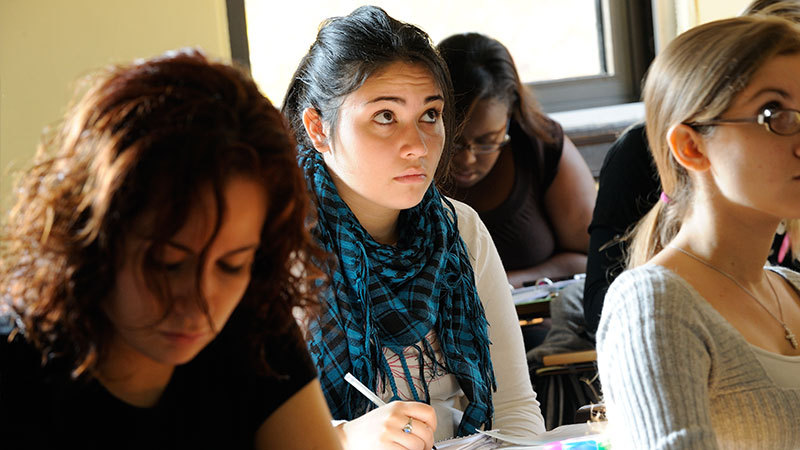The transition to a new school is inherently stressful. There’s a new campus to navigate, new classmates to meet and a new routine to adopt. The stressors and fears that surround change are intimidating to all of us, at any age. The most important lesson to learn is you’re not alone.
A recent New York Times article explored the fear of failure in freshman students, and the psychological origin of such worries. What they discovered, along with a large-scale study, was that “the view of intelligence that you adopt for yourself shapes your educational experience.” Intelligence and academic success aren’t built-in to certain people and absent from others — these traits are only developed through hard work.
If you stress about not being as smart as the classmate next to you, try to remember that you’re all in this boat together. And if you need any help, whether it be academic guidance, personal wellbeing assistance or otherwise, our staff and faculty are available to you whenever you need them.
Faculty such as Paul Ginnety, Ph.D., of the SJC Long Island Psychology Department:
One of the most confusing things in life is that we are always comparing our insides to everybody else’s outsides — keep in mind that outsides generally look a whole lot more cool and confident than insides.”
“One of the most important things to recognize is that whatever anxiety you are experiencing is entirely normal and expectable. It’s the universal reaction to the uncertainty represented by the new challenges and opportunities you face. Be assured that almost all of your peers are feeling much the same way — even those who don’t appear to be. One of the most confusing things in life is that we are always comparing our insides to everybody else’s outsides — keep in mind that outsides generally look a whole lot more cool and confident than insides.”
“You might also want to try reframing the fear you’re feeling as excitement. The same uncertainty provoked by this new environment is the source of both trepidation and tremendous possibility. Anything can happen here! Our minds naturally race to the uncomfortable or unfortunate things that might happen. Those generally turn out not to occur, or if they do, they tend to not to have been such a big deal after all. It’s helpful to see these uncharted waters as ones of amazing potential. You have no way of predicting the new ideas that will capture your imagination and refine your sense of purpose and meaning in life, the rich sustaining relationships that will develop over time. You will never again find yourself in such a target-rich environment for meeting interesting and likable new people and the career path that will evolve — perhaps the expected one or one that will surprise and delight you.”
You have no way of predicting the new ideas that will capture your imagination and refine your sense of purpose and meaning in life…”
“When in doubt, turn to other people. Become involved in something — anything! It’s corny but nevertheless true — a number of the strangers standing before you are just friends you haven’t met yet. Stick your neck out a bit, take initiative. Ask for help. Turn to your professors and the other people on campus who are such wonderful resources. In my experience as a professor, the only time a student runs into an unsolvable problem and has to leave the college is when he or she didn’t come forward to seek our help, or didn’t do so in time. That makes us very sad. We are here to help. We love doing it. It’s an important part of what makes our day to day lives rich and rewarding.”



1 comment
I really like the idea of considering others’ “insides” versus “outsides”. I will share this good advice with my own students, especially the first-year teachers who are often nervous and anxious to prove their competence and wonder why everyone else seems to pull it together with ease.